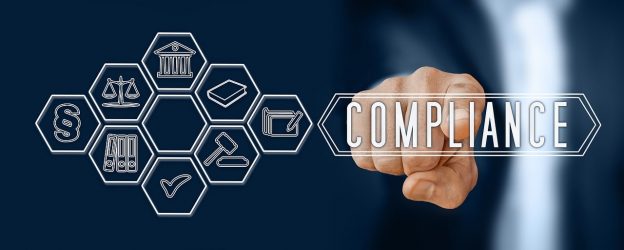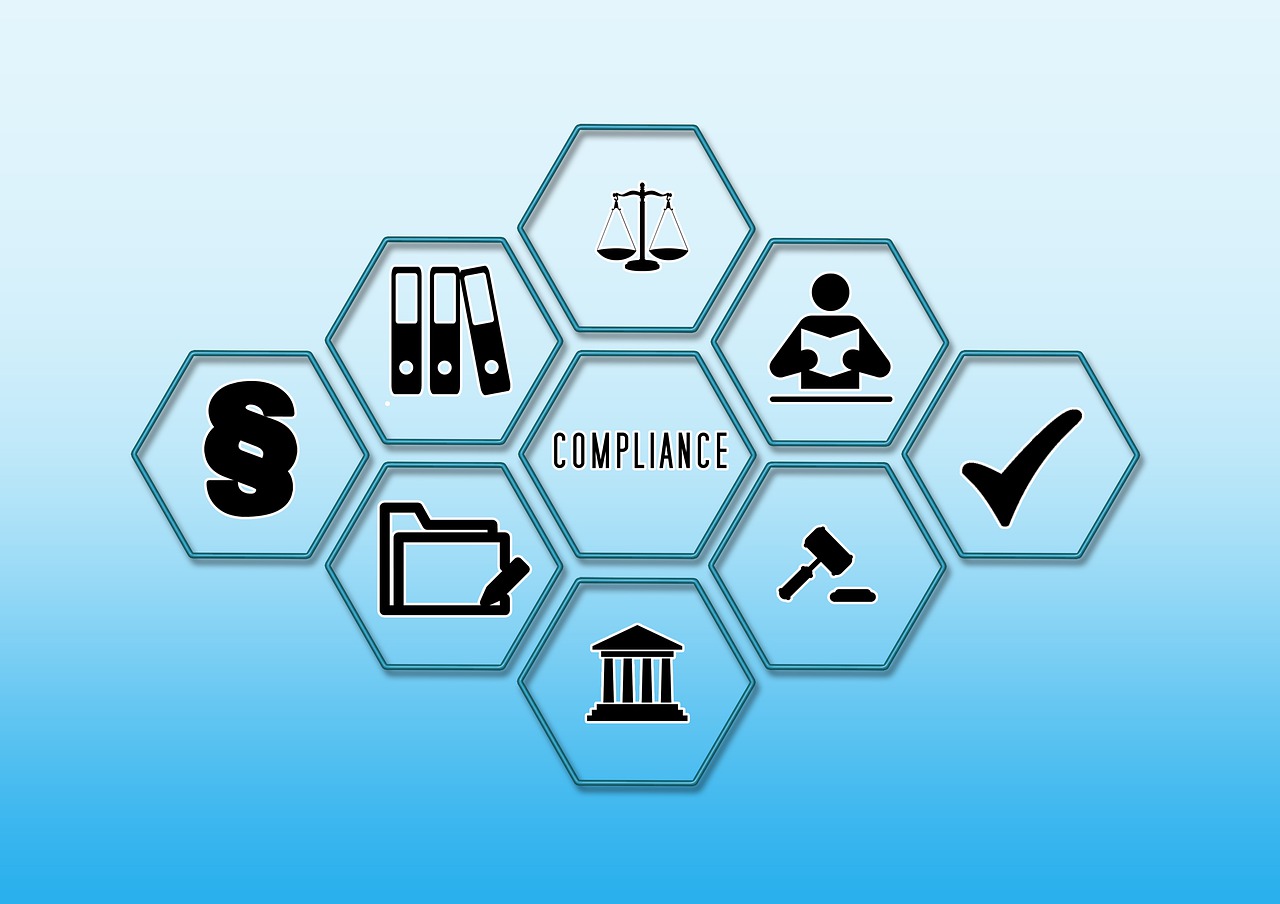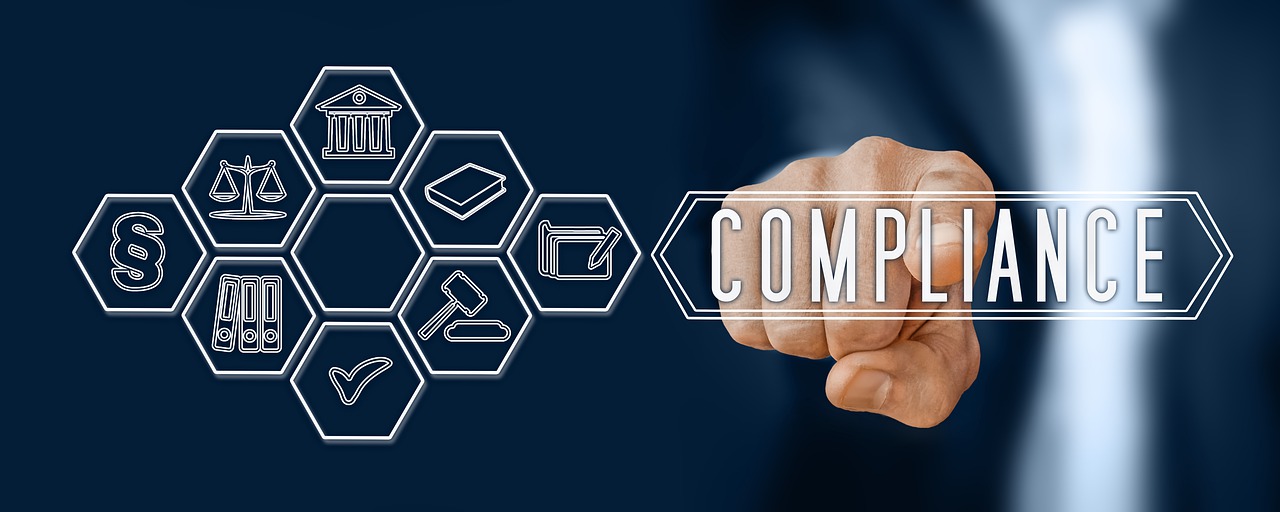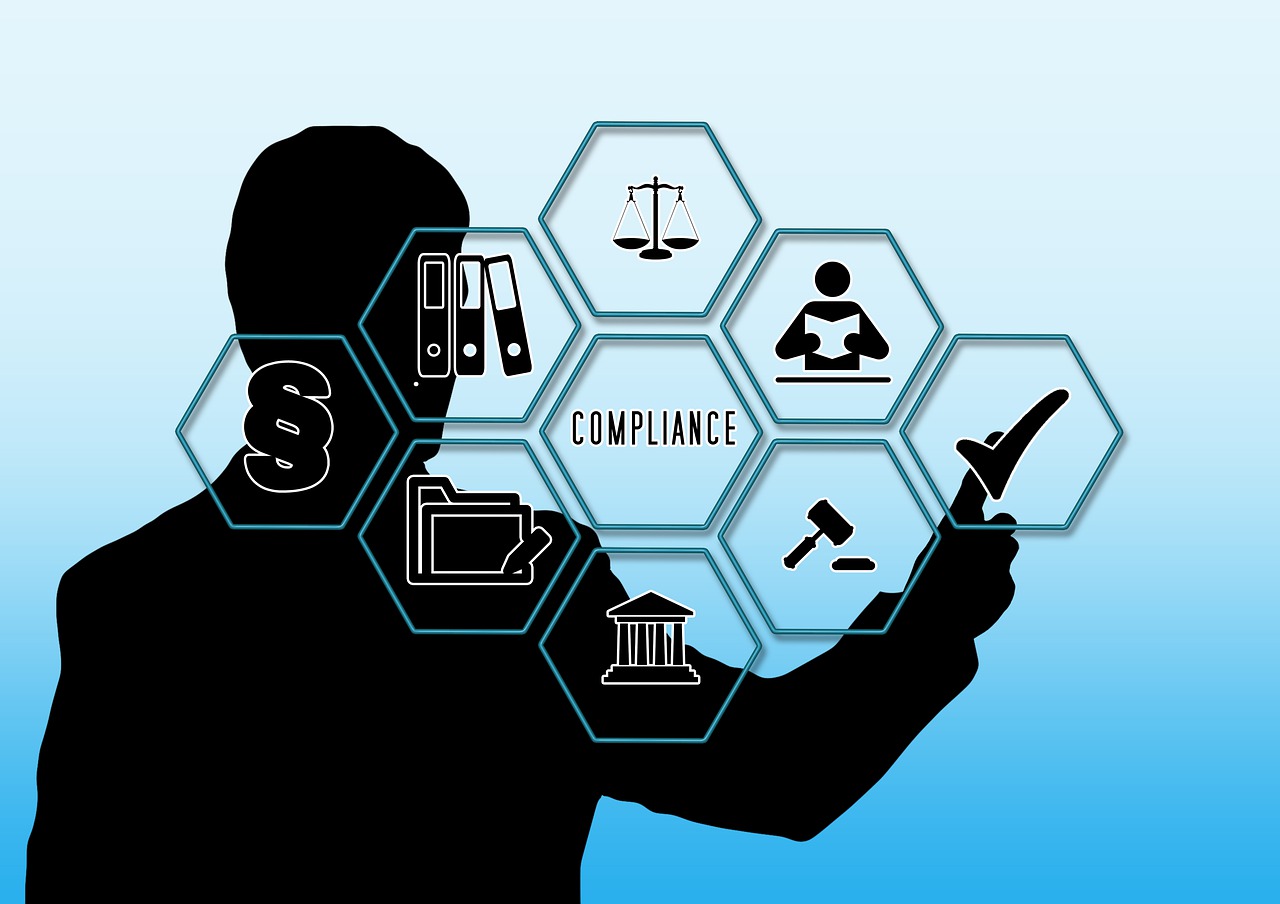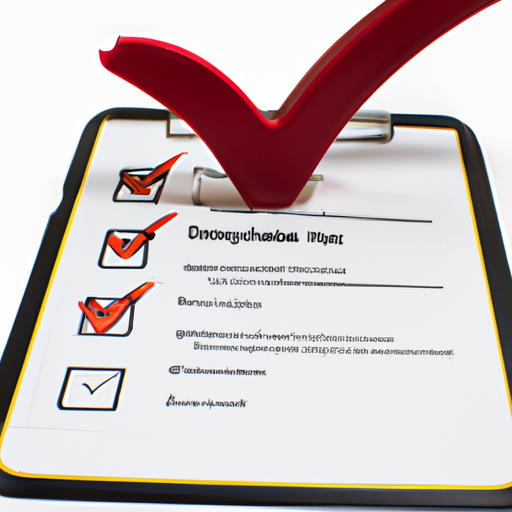In today’s digital age, social media has become an integral part of our daily lives. From sharing personal moments to promoting businesses, social media platforms offer a vast space for communication and interaction. However, for businesses in the electronics industry, navigating the realm of social media presents unique challenges and legal considerations. With the ever-evolving landscape of electronic devices and emerging technologies, it is crucial for companies to ensure compliance with social media claims. This article delves into the intricacies of social media claims compliance for electronics, providing valuable insights and practical guidance for businesses in this dynamic sector.
Overview of Social Media Claims Compliance

Definition of Social Media Claims Compliance
Social media claims compliance refers to the adherence of businesses in the electronics industry to regulations and guidelines when making claims or promoting their products or services on social media platforms. This includes ensuring that the information shared on social media is accurate, truthful, and in compliance with legal requirements.
Importance of Social Media Claims Compliance
Social media claims compliance is crucial for businesses operating in the electronics industry due to several reasons. Firstly, it helps maintain consumer trust and confidence in the brand and its offerings. When businesses make false or misleading claims on social media, it can lead to customer dissatisfaction, negative reviews, and a damaged reputation.
Additionally, compliance with social media claims regulations is essential to avoid legal consequences. Regulatory bodies, such as the Federal Trade Commission (FTC), closely monitor social media content for false or deceptive claims. Non-compliance can result in penalties, fines, and legal battles, which can be detrimental to a business’s financial stability and reputation.
Lastly, social media claims compliance provides businesses with a competitive advantage and sets them apart from their competitors. By ensuring that their claims are accurate and backed by evidence, businesses can build a strong brand image and attract more customers who value transparency and honesty.
Legal Requirements for Social Media Claims Compliance
Businesses in the electronics industry must adhere to various legal requirements when making claims on social media platforms. These requirements aim to protect consumers from false or deceptive advertising practices. Some key legal requirements for social media claims compliance include:
-
Truthfulness: Businesses must ensure that their claims are truthful and not misleading. They should avoid making exaggerated or unsubstantiated statements about their products or services.
-
Clear and Disclose Policies: It is important for businesses to have clear policies regarding disclosure of material connections, endorsements, or testimonials. They should clearly state when a post or review is sponsored or when an influencer is promoting their product.
-
Substantiation: Claims made on social media should be based on reasonable and reliable evidence. Businesses should have adequate proof to support the claims they make.
-
Comparative Advertising: If businesses compare their products or services to competitors’, they must ensure the comparison is fair, accurate, and substantiated by evidence.
-
Health and Safety Claims: When making health or safety claims, businesses must have scientific evidence to support such claims. Misleading health claims can have serious consequences for consumers.
-
Environmental Claims: If businesses make environmental claims on social media, they must be truthful, accurate, and supported by reliable evidence. Greenwashing, or making false or exaggerated environmental claims, can harm a company’s reputation.
Understanding these legal requirements is crucial for businesses in the electronics industry to ensure compliance and avoid legal pitfalls.
Understanding Electronics Industry
Overview of the Electronics Industry
The electronics industry encompasses a wide range of businesses involved in the design, manufacturing, and sale of electronic devices, components, and systems. This industry is characterized by rapid technological advancements, constant innovation, and fierce competition.
The electronics industry plays a vital role in various sectors, including consumer electronics, telecommunications, automotive, healthcare, and manufacturing. It influences almost every aspect of modern life, from smartphones and laptops to smart home devices and electric vehicles.
Key Players in the Electronics Industry
The electronics industry is made up of numerous key players, including established multinational corporations, niche market players, and emerging startups. Some of the prominent companies in this field include:
- Apple Inc.
- Samsung Electronics Co., Ltd.
- Sony Corporation
- LG Electronics Inc.
- Intel Corporation
- Microsoft Corporation
These companies are known for their cutting-edge technology, innovative product offerings, and strong brand presence. They heavily invest in research and development to introduce new products and improve existing ones to stay ahead in the competitive electronics industry.
Common Marketing Practices in the Electronics Industry
Marketing is crucial for the success of businesses in the electronics industry. To promote their products, gain market share, and attract customers, companies employ various marketing strategies and practices. Some of the common marketing practices in the electronics industry include:
-
Product Launches: Electronics companies often create hype and anticipation around new product launches through strategic marketing campaigns. They utilize social media platforms to generate buzz, release teasers, and showcase the features and functionalities of their upcoming products.
-
Influencer Marketing: Collaborating with popular social media influencers and tech reviewers has become an effective marketing strategy in the electronics industry. Influencers lend credibility to a product through their endorsements, reviews, and demonstrations, reaching a large audience and influencing their purchasing decisions.
-
Online Advertising: Electronics companies heavily rely on online advertising, including display ads, search engine marketing, and social media advertising, to reach their target audience. They use targeted campaigns to showcase their products to consumers who have expressed interest in similar products or show relevant online behavior.
-
Content Marketing: Creating engaging and informative content is an essential marketing practice in the electronics industry. Companies provide valuable information, tutorials, and insights about their products through blog posts, videos, and podcasts to attract and educate potential customers.
Understanding these common marketing practices is essential to ensure that social media claims compliance aligns with industry norms and regulations in the electronics sector.
Challenges in Social Media Claims Compliance
Rapidly Evolving Technology Landscape
One of the significant challenges in social media claims compliance in the electronics industry is the rapidly evolving technology landscape. New technologies emerge at a rapid pace, and businesses must keep up with the latest trends and innovations to stay competitive. However, this fast-paced environment can make it challenging for companies to ensure that their claims on social media remain accurate and compliant.
As companies release new products and features, they need to ensure that the claims made on social media are up to date, supported by evidence, and meet legal requirements. Failure to comply with these regulations can lead to legal consequences, reputation damage, and loss of consumer trust.
Lack of Awareness and Understanding
Another challenge in social media claims compliance is the lack of awareness and understanding among businesses in the electronics industry. Many businesses may not be fully aware of the specific regulations and guidelines pertaining to advertising and claims on social media platforms.
This lack of awareness can result in unintentional violations of regulations, leading to potential legal risks. It is crucial for businesses to invest in educating themselves and their marketing teams about social media claims compliance to ensure adherence to legal requirements.
Increased Scrutiny and Consumer Protection
In recent years, there has been an increase in scrutiny and consumer protection measures concerning social media claims in the electronics industry. Regulatory bodies, such as the Federal Trade Commission (FTC), closely monitor social media content to protect consumers from false or misleading advertising.
With the rise of influencer marketing and sponsored content, there has been a focus on transparency and disclosure of relationships between businesses and influencers. Businesses must clearly disclose when content is sponsored or when an influencer is endorsing their product to maintain transparency and prevent consumer deception.
The increased scrutiny and consumer protection measures highlight the importance of social media claims compliance and the need for businesses to stay vigilant in their marketing practices.
Legal Framework for Social Media Claims Compliance
Regulatory Bodies and Guidelines
Several regulatory bodies provide guidelines and regulations for social media claims compliance in the electronics industry. These bodies aim to protect consumers from false or deceptive advertising practices and ensure fair competition. Some prominent regulatory bodies include:
-
Federal Trade Commission (FTC): The FTC is the primary regulatory body in the United States responsible for enforcing truth-in-advertising laws. They provide guidelines and regulations pertaining to advertising claims, endorsements, testimonials, and other promotional practices on social media.
-
Advertising Standards Authorities (ASA): ASA operates in the United Kingdom and regulates advertising across various media channels, including social media. They ensure that advertisements are legal, honest, and truthful.
-
European Advertising Standards Alliance (EASA): EASA is an alliance of advertising self-regulatory organizations across Europe. They promote responsible advertising practices and provide guidelines for advertisers operating in the European market.
Federal Trade Commission (FTC) Regulations
The FTC plays a vital role in social media claims compliance in the electronics industry. They have specific regulations and guidelines that businesses must follow when promoting their products or services on social media platforms.
According to the FTC guidelines, businesses must avoid making false or misleading claims, provide clear and conspicuous disclosures, and possess sufficient evidence to substantiate their claims. They also emphasize the importance of disclosing material connections, endorsements, or testimonials to ensure transparency and prevent consumer deception.
The FTC actively monitors social media platforms for violations and takes action against businesses that engage in deceptive or unfair trade practices. Businesses that fail to comply with FTC regulations may face penalties, fines, legal battles, and reputational damage.
Advertising Standards and Best Practices
Apart from regulatory bodies, there are various advertising standards and best practices that businesses should follow to ensure social media claims compliance. These standards and best practices are industry-specific and aim to promote ethical advertising practices.
For the electronics industry, businesses should consider the following advertising standards:
-
Clear and Transparent Disclosures: Businesses should clearly disclose any material connections, endorsements, or testimonials related to their products or services. The disclosure should be clear, conspicuous, and easily noticeable by consumers.
-
Substantiation of Claims: Businesses should have adequate supporting evidence to substantiate the claims they make on social media. They should possess scientific data, research, or tests that prove the efficacy, performance, or functionality of their products.
-
Accuracy and Clarity: Claims made on social media should be accurate, truthful, and easily understandable by consumers. Exaggerated or misleading claims should be avoided, as they may lead to customer dissatisfaction or potential legal consequences.
-
Compliance Monitoring: Businesses should actively monitor their social media channels to ensure compliance with advertising standards. Regular audits, reviews, and reporting can help identify and rectify any non-compliant claims or practices.
By adhering to these advertising standards and best practices, businesses in the electronics industry can enhance their social media claims compliance and build trust with their target audience.
Types of Social Media Claims for Electronics
Product Performance and Functionality Claims
Product performance and functionality claims are common in the electronics industry. Businesses often make claims about the features, specifications, and capabilities of their products on social media platforms.
These claims may include statements about the speed, battery life, durability, resolution, connectivity, or any unique selling points of the electronic devices. To comply with social media claims regulations, businesses must ensure that their claims are accurate, substantiated, and supported by reliable evidence.
Comparative and Competitive Claims
Comparative and competitive claims involve businesses comparing their products or services to those of their competitors. These claims aim to highlight the superiority or advantages of their offerings over others in the market.
When making comparative claims on social media, businesses must ensure that the comparison is fair, accurate, and substantiated by evidence. Misleading or false comparative claims can lead to legal consequences, reputation damage, and loss of consumer trust.
Endorsements and Testimonials
Endorsements and testimonials play a significant role in social media marketing for the electronics industry. Businesses often collaborate with influencers, celebrities, or satisfied customers to endorse their products or provide testimonials.
To comply with social media claims regulations, businesses must clearly disclose any material connections or compensations related to endorsements. The endorsements should be truthful, accurate, and reflect genuine experiences and opinions.

Health and Safety Claims
The electronics industry also includes products related to health and safety, such as wearable devices, medical equipment, and personal care devices. Businesses often make claims about the health benefits or safety features of these products on social media.
However, businesses must ensure that these claims are supported by scientific evidence and do not mislead consumers. Health and safety claims require rigorous testing and certifications to comply with regulatory requirements and ensure consumer safety.
Environmental Claims
As sustainability becomes increasingly important, businesses in the electronics industry may make environmental claims on social media. These claims may include statements about the energy efficiency, recyclability, or eco-friendly features of their products.
To comply with social media claims regulations, businesses must ensure that their environmental claims are truthful, accurate, and supported by reliable evidence. Making false or exaggerated environmental claims, known as greenwashing, can lead to reputational damage and legal consequences.
Understanding these types of social media claims is crucial for businesses in the electronics industry to ensure compliance and ethical marketing practices.
Ensuring Social Media Claims Compliance
Conducting a Compliance Audit
To ensure social media claims compliance, businesses should conduct regular compliance audits. These audits involve reviewing all social media content, claims, endorsements, and testimonials to identify any non-compliant practices.
During a compliance audit, businesses should focus on verifying the accuracy and substantiation of claims, checking for clear and conspicuous disclosures, and assessing compliance with industry regulations and guidelines. The audit should also address any potential issues and recommend corrective actions.
By conducting regular compliance audits, businesses can identify and rectify any non-compliant claims or practices, reducing the risk of legal consequences and reputational damage.
Educating Marketing and Social Media Teams
To promote social media claims compliance, businesses should invest in educating their marketing and social media teams about relevant regulations, guidelines, and best practices. Training programs and workshops can help teams understand their obligations and responsibilities when making claims on social media.
Educating the teams will ensure that they are aware of the legal requirements for claims, disclosures, endorsements, and testimonials. It will also provide them with the knowledge and skills to create accurate, truthful, and compliant social media content.
Implementing Clear and Disclose Policies
Clear and disclose policies are essential for businesses to ensure transparency and compliance with social media claims regulations. These policies should clearly define how businesses should disclose any material connections, endorsements, or testimonials in their social media content.
Businesses should implement clear guidelines for the placement, visibility, and wording of disclosures to ensure that consumers can easily identify sponsored or endorsed content. These policies should also address the use of hashtags, labels, or other indicators to distinguish promotional content.
By implementing clear and disclose policies, businesses can mitigate the risk of non-compliance and demonstrate their commitment to transparency and consumer protection.

Monitoring, Reviewing, and Reporting
Continuous monitoring, reviewing, and reporting of social media content is crucial to maintaining social media claims compliance. Businesses should implement systems or tools to monitor their social media channels and identify any non-compliant claims or practices.
Regular reviews and assessments of social media content will help businesses identify areas that require improvement, ensure accuracy and substantiation of claims, and address any potential non-compliance. Reporting on compliance efforts and outcomes will provide transparency and accountability to stakeholders.
Addressing Non-compliance and Legal Risks
If businesses identify non-compliant claims or practices, they should take immediate corrective actions to address the issues. This may involve removing or rectifying inaccurate claims, updating disclosures, or discontinuing non-compliant marketing strategies.
Additionally, businesses should assess and address any legal risks associated with non-compliance. Engaging legal counsel experienced in advertising and social media claims compliance can help businesses navigate legal challenges, mitigate risks, and protect their interests.
By addressing non-compliance and legal risks proactively, businesses can minimize the potential consequences and maintain a high level of social media claims compliance.
Benefits of Social Media Claims Compliance
Enhanced Consumer Trust and Reputation
One of the key benefits of social media claims compliance is the enhanced consumer trust and reputation. When businesses consistently make accurate and truthful claims on social media, it builds trust with consumers, as they can rely on the information provided.
By maintaining the trust of consumers, businesses can improve their reputation, attract new customers, and retain existing ones. Customers are more likely to choose brands that they trust and perceive as transparent and honest.
Avoidance of Legal Consequences
Social media claims compliance helps businesses avoid legal consequences associated with non-compliance. Regulatory bodies, such as the FTC, closely monitor social media content for false or deceptive claims. Non-compliance with advertising regulations can lead to penalties, fines, litigation, and reputational damage.
By adhering to social media claims regulations, businesses minimize legal risks and ensure compliance with the applicable laws. Legal compliance not only protects businesses from financial liabilities but also demonstrates their commitment to ethical business practices.
Competitive Advantage and Brand Differentiation
Social media claims compliance provides businesses with a competitive advantage and sets them apart from their competitors. By ensuring that their claims are accurate, truthful, and backed by evidence, businesses can build a strong brand image and attract more customers.
In a crowded marketplace, where consumers have numerous options, businesses that prioritize social media claims compliance differentiate themselves through transparency and honesty. This can lead to increased customer loyalty, repeat business, and a positive brand perception.
By highlighting their commitment to social media claims compliance, businesses can position themselves as trusted industry leaders and gain a competitive edge.
Potential Consequences of Non-compliance
Legal Penalties and Fines
One of the potential consequences of non-compliance with social media claims regulations is the imposition of legal penalties and fines. Regulatory bodies, such as the FTC, have the authority to penalize businesses for engaging in deceptive or unfair trade practices.
Penalties and fines can vary depending on the severity of the violation and the impact on consumers. Non-compliant businesses may also incur legal costs associated with defending themselves during investigations or legal battles.
Negative Public Perception and Damage to Brand
Non-compliance with social media claims regulations can result in negative public perception and damage to the brand. Consumers expect businesses to be transparent, honest, and ethical in their marketing practices.
When businesses make false or misleading claims on social media, it can lead to distrust, customer dissatisfaction, and negative reviews. Negative publicity can spread rapidly through social media platforms, harming a business’s reputation and potentially impacting its bottom line.
Loss of Consumer Trust and Loyalty
Non-compliance with social media claims regulations can erode consumer trust and loyalty. When businesses fail to deliver on their promises or engage in deceptive advertising practices, it creates a sense of betrayal among consumers.
Loss of consumer trust can result in decreased customer loyalty, reduced repeat business, and a negative impact on sales. Consumers are more likely to choose brands that they perceive as transparent, honest, and accountable.
Businesses should prioritize social media claims compliance to preserve consumer trust and maintain long-term brand loyalty.
Frequently Asked Questions (FAQs)
What are the consequences of making false claims on social media?
Making false claims on social media can have several consequences, including legal penalties, fines, reputation damage, loss of consumer trust, and negative publicity. Regulatory bodies closely monitor social media content for deceptive or unfair trade practices, and businesses that engage in such practices can face severe consequences.
How can businesses ensure compliance with social media claims regulations?
Businesses can ensure compliance with social media claims regulations by conducting regular compliance audits, educating their marketing teams about relevant regulations, implementing clear and disclose policies, monitoring and reviewing social media content, and addressing any non-compliance or legal risks promptly.
Additionally, engaging legal counsel experienced in advertising and social media claims compliance can provide guidance and support in navigating the complex legal landscape.
What types of claims are most commonly regulated in the electronics industry?
Some of the types of claims commonly regulated in the electronics industry include product performance and functionality claims, comparative and competitive claims, endorsements and testimonials, health and safety claims, and environmental claims.
These claims are closely monitored to ensure accuracy, substantiation, and compliance with applicable regulations and guidelines.
Are there any specific guidelines for using influencers in social media marketing?
Yes, there are specific guidelines for using influencers in social media marketing. Businesses should clearly disclose any material connections or compensations related to endorsements. The disclosure should be clear, conspicuous, and easily noticeable by consumers. Hashtags, labels, or other indicators should be used to distinguish sponsored or endorsed content.
Additionally, businesses should ensure that influencers provide truthful, accurate, and genuine endorsements that reflect their actual experiences and opinions.
Can social media claims compliance be outsourced to a third-party agency?
While some aspects of social media claims compliance, such as monitoring and reviewing social media content, can be outsourced to a third-party agency, ultimate responsibility for compliance lies with the business itself.
Outsourcing certain tasks can provide expertise and support in maintaining compliance, but businesses should remain actively involved in setting policies, reviewing content, and addressing any non-compliance issues. Regular communication and collaboration with the third-party agency are essential to ensure complete compliance.












